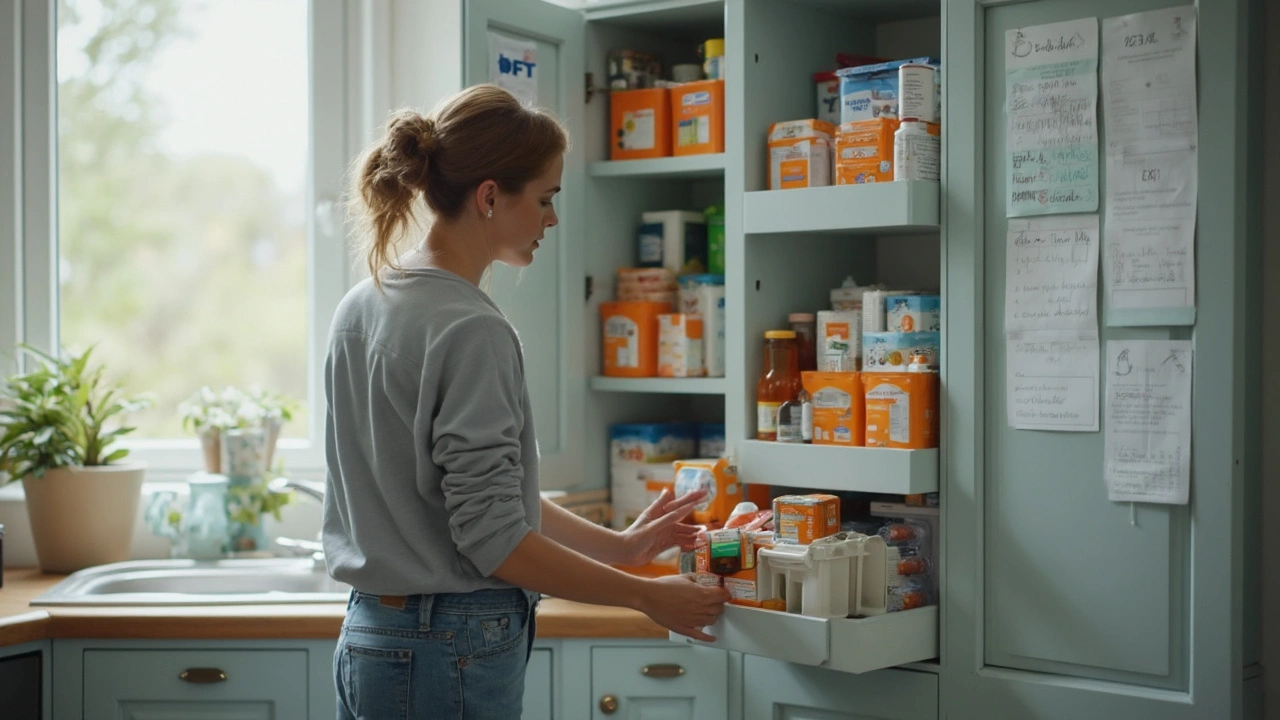Shelf-Life Basics: How Long Do Your Meds Really Last?
Ever opened a bottle of pills and wondered if they’re still good? The short answer: most medicines have an expiration date that tells you when the manufacturer guarantees full potency. After that date, the drug might lose strength or change chemically, which can affect how well it works.
Understanding Expiration Dates
Expiration dates are not random; they’re based on lab testing under specific storage conditions. A tablet stored in a cool, dry place will usually keep its potency longer than one kept in a bathroom cabinet that sees steam every day. The date you see on the label is the last day the product is expected to meet quality standards when stored as directed.
There are three common types of dates you might spot:
- Expiration (EXP) date: guarantees full potency until this day.
- Manufacture (MFG) date: shows when the batch was made; useful for calculating shelf life if no EXP is printed.
- Beyond‑use date (BUD): used for compounded or reconstituted meds, indicating how long after preparation they stay safe.
If you can’t find a clear date, check the packaging for a lot number and contact the pharmacy. They often can look up the exact expiry info for you.
Tips for Extending Shelf Life
The best way to keep meds effective is simple: store them where they belong. Here are no‑nonsense tips you can start using right now:
- Cool and dry wins: Aim for a temperature between 68–77°F (20–25°C) and less than 50% humidity. A kitchen cabinet away from the stove works better than a bathroom shelf.
- Avoid light: Many pills degrade when exposed to sunlight. Keep them in their original opaque containers or transfer to amber glass if you need extra protection.
- Seal tight: Every time you open a bottle, air and moisture get in. Close the lid firmly, and consider using a desiccant packet (the little silica gel you see) if the manufacturer includes one.
- No fridge unless needed: Only refrigerate meds that specifically say so—like certain insulin or antibiotics. Cold can cause condensation when you pull the bottle out, which speeds up breakdown.
- Check regularly: Do a quick scan of your medicine cabinet each month. Toss anything past its expiry date and replace it if you still need it.
When you travel, pack meds in a insulated pouch to keep temperature swings low. If you’re on a long road trip, store them in the trunk rather than the glove compartment where heat builds up quickly.
If you’ve already got a batch that’s slightly past its date but still looks normal—no discoloration, no weird smell—you might be tempted to use it. The safest bet is to call your pharmacist. They can advise whether the drug is likely still effective or if you need a fresh prescription.
Remember, using an expired medication isn’t always dangerous, but it can mean you’re not getting the full dose you expect. For critical drugs—like heart meds, antibiotics, or insulin—it’s especially important to stay within the recommended window.
Bottom line: read those dates, store smart, and do a quick monthly check. That way you’ll get the most out of every prescription without wasting money or risking reduced effectiveness.
Bulk Ordering Medications: Maximize Savings with Shelf-Life, Temperature, and Customs Tips
Looking to slash your prescription costs? This article digs into bulk ordering medications with a sharp focus on how to handle shelf-life, temperature control, and customs hurdles. You’ll get clear, step-by-step tips and facts to make bulk buying safe, smart, and budget-friendly. Find out how to store meds the right way, dodge spoilage issues, and deal with international shipping without surprises. Save money while staying healthy with this up-to-date, hands-on guide.
